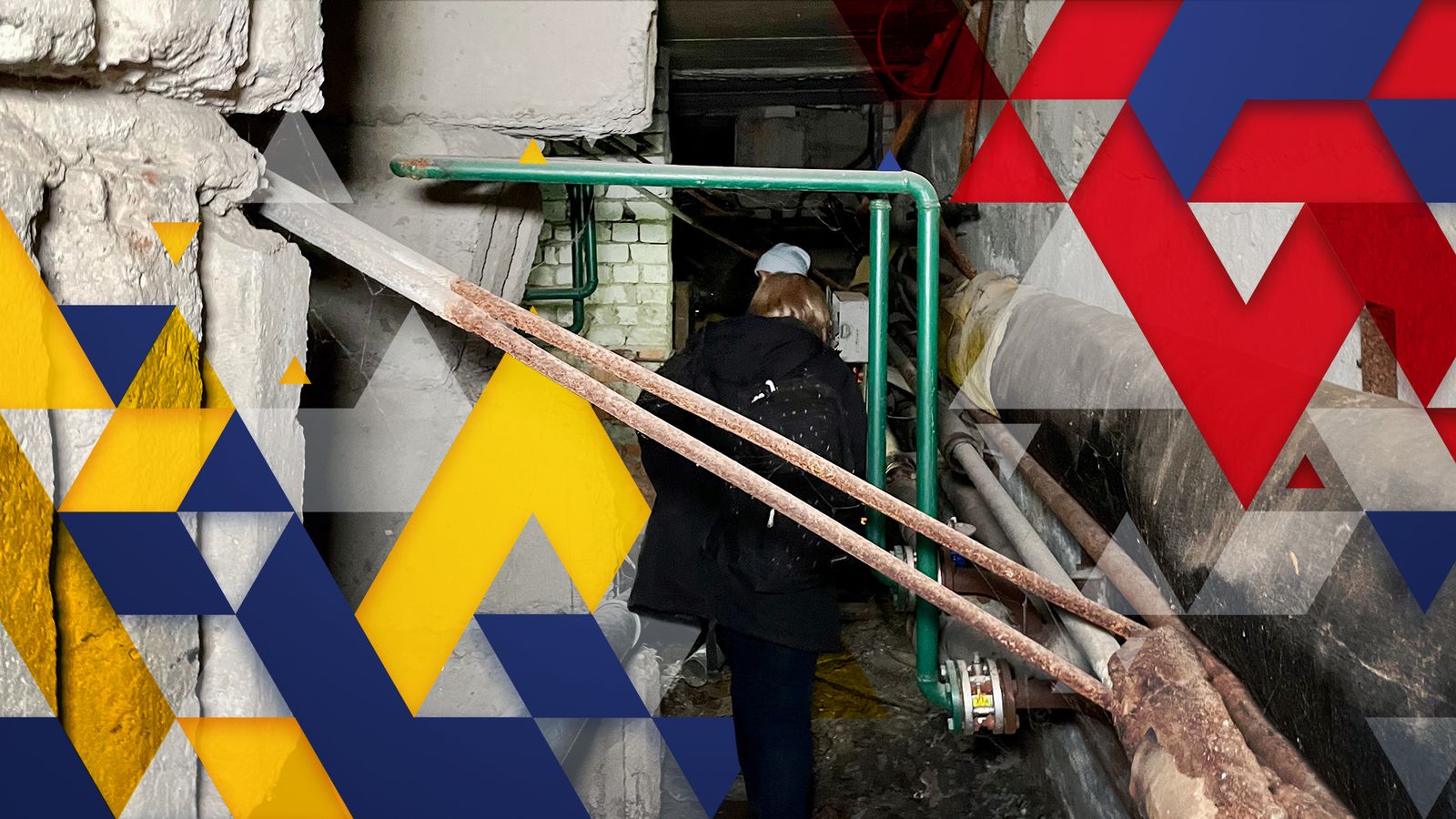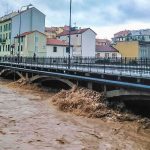“Tell the people of Britain we are a civilised country, tell them we are European, tell them we aren’t Russian. God Save the Queen!” and with that Yulia Smagina bayed us farewell.
We had spent the morning with this quite remarkably energetic and engaging woman as she looked for air raid shelters and bunkers that the Ukrainian government says are dotted all over the city of Kharkiv, although Yulia insists they are largely “theoretical shelters”.
So far she has only found 100, there are meant to be 4,300; of the 100, Yulia says 96 are uninhabitable, and more often than not, they are locked so in an emergency they are basically useless.
Yulia is a district councillor here in Kharkiv and reports the results of her investigations to the local authorities, urging them to do something about it.
Phone in hand, she uses a website that identifies the basements of buildings designated by the government as suitable bunkers if the city comes under attack.
Yulia works her way through the site often asking local residents for assistance in finding the underground basements and bunkers.
Cyber, war and Ukraine: What does recent history teach us to expect?
Europe’s military threat will rise if Russia invades Ukraine, Estonia’s foreign spy agency warns
Russia-Ukraine crisis: Boris Johnson says Russia sending ‘mixed signals’ as Moscow says West ‘humiliated’ over Ukraine invasion warnings
Not a single person we met had a good word to say for them.
Shelters flooded and overpowered by the smell of human waste
One resident told us that the shelter beneath her apartment block was flooded with sewage and actually a danger to health, so nobody could go into it safely.
She offered to take us inside. A gate was opened, and we were directed to follow them downstairs.
Yevhen Goncharov spotted us and two of his neighbours – and followed us into the bowels of the apartment block to have a look.
Please use Chrome browser for a more accessible video player
His pregnant wife, who is due next month, waited at the top of the stairs.
Halfway down, one of the women indicated to the others they should be wearing a mask – prompting Yulia to say, “Oh sorry, is it because of COVID?” The resident replied: “No, it’s because it stinks down here.”
She wasn’t wrong.
Downstairs is genuinely awful – the stench of human waste is overpowering, it’s impossible to imagine anyone taking refuge here.
‘I can’t bring her down here if there is an attack’
With tensions rising here in Ukraine the lack of preparedness is becoming a big issue for the government.
Yevhen stood next to me shaking his head. “This isn’t good”, I said to him. He agreed it was terrible.
Please use Chrome browser for a more accessible video player
“What can I do, my wife is pregnant, I can’t bring her down here if there is an attack.”
Yevhen doesn’t believe Russia will attack any time soon, but that one day it’s very likely they will.
Please use Chrome browser for a more accessible video player
That is a view held by many we have met here – Yulia included. She says she’s used to the threats coming from Russia.
I asked her if she thinks they will attack… “I think today no, and tomorrow no, but in future maybe. Maybe in future because they want [to] break our country and make it district of Russia.”
Despite the dire warnings about an invasion and huge casualties here, there’s no discernible sense of panic.
People making preparations for an attack
People are worried of course but nothing’s really changed. Some however are making preparations, just in case.
Twice a week, every week, Elena Znatkova and her daughter Darya meet in their kitchen of their Soviet-era apartment block and run through safety protocols they’ve developed for if Kharkiv is attacked.
They go through where they will hide and where they will try to escape. They have an emergency escape bag with some medicines and passports permanently packed and ready.
Read more: Cyber, war and Ukraine: What does recent history teach us to expect?
They escaped the separatist city of Luhansk, taken over in 2014. Elena is praying it doesn’t happen again.
“The memories are overwhelming. However, I’m feeling more self-collected, prepared, and protected, simply because I know what to do, where to go, and what to take with me.
“This emergency bag is… It’s eight years of my life in extreme conditions, especially now.”
Bi-weekly meetings keep Darya strong
Her daughter says that she doesn’t really remember her flight from Luhansk, she was only 10 years old. Now she’s in college, she says that she and her friends are all very scared at the moment.
She told me the twice-weekly meetings with her mum help keep her strong.
Follow the Daily podcast on Apple Podcasts, Google Podcasts, Spotify, Spreaker
“Of course, when I start thinking about it, cannot catch my breath. But you should be well prepared for situations like these, so I keep calm, and I know what to do.”
On Wednesday the country’s been called to celebrate its existence. It’s the same day that some have said Russia will invade – though they don’t appear to believe it here.






















